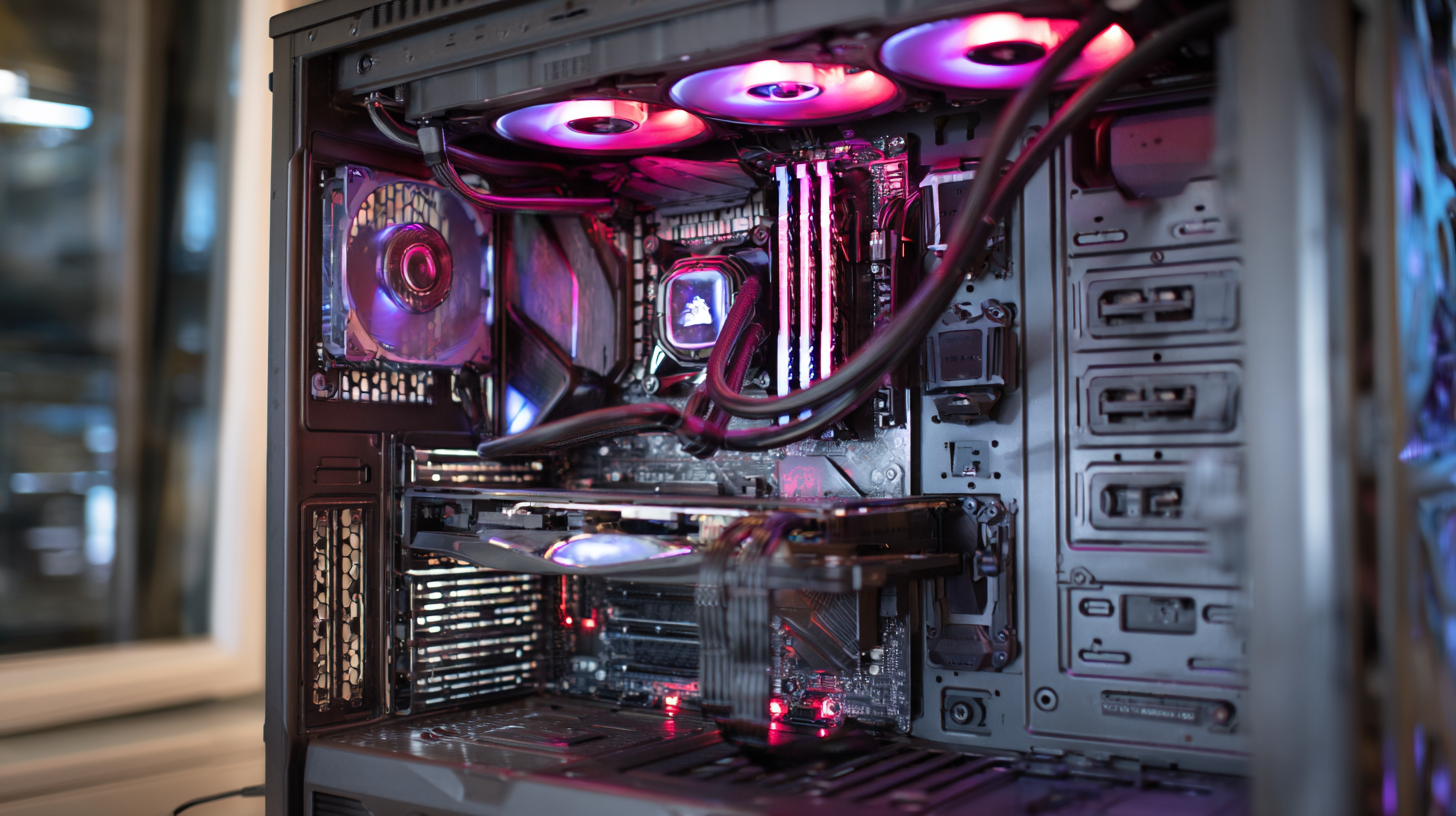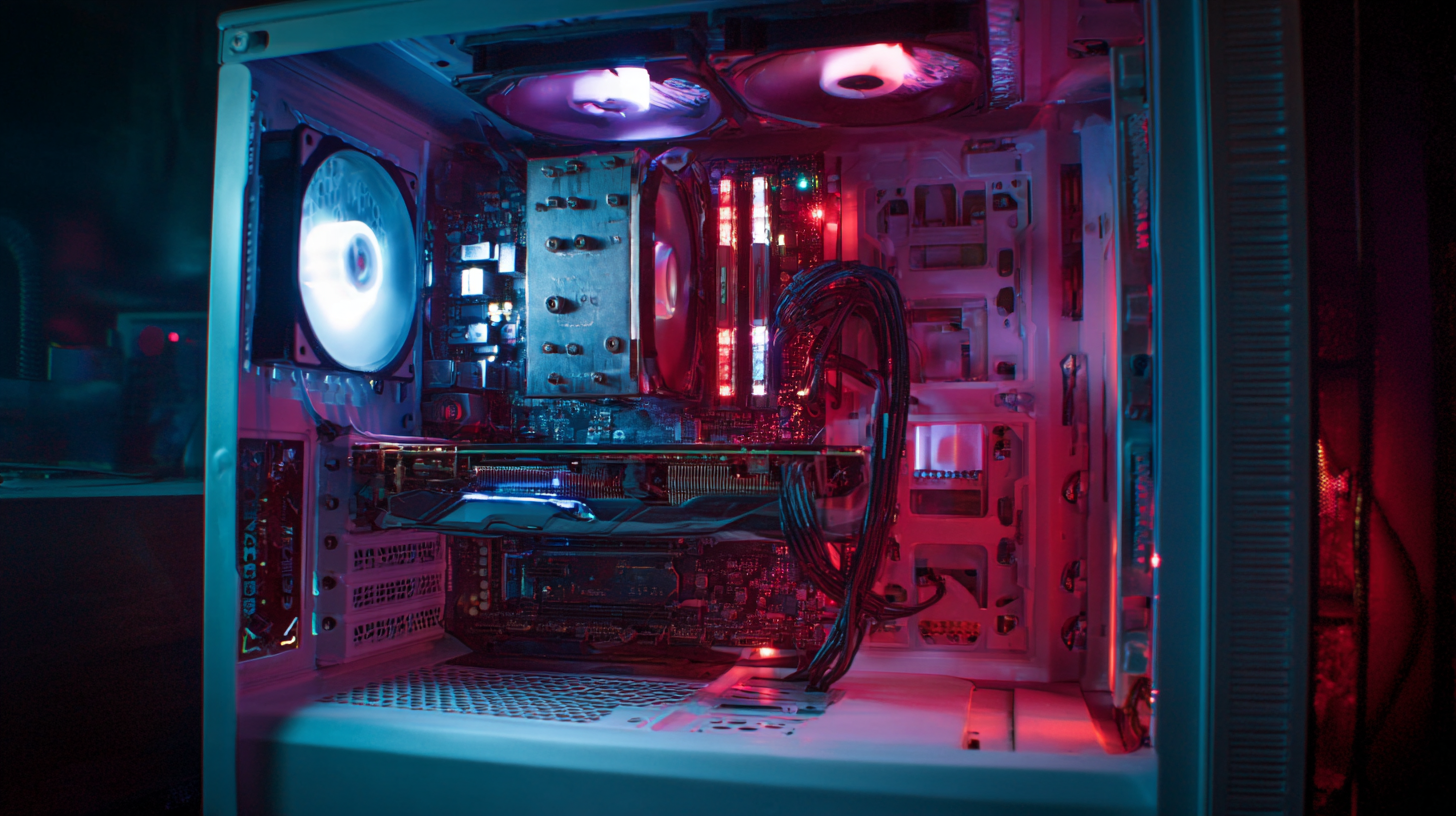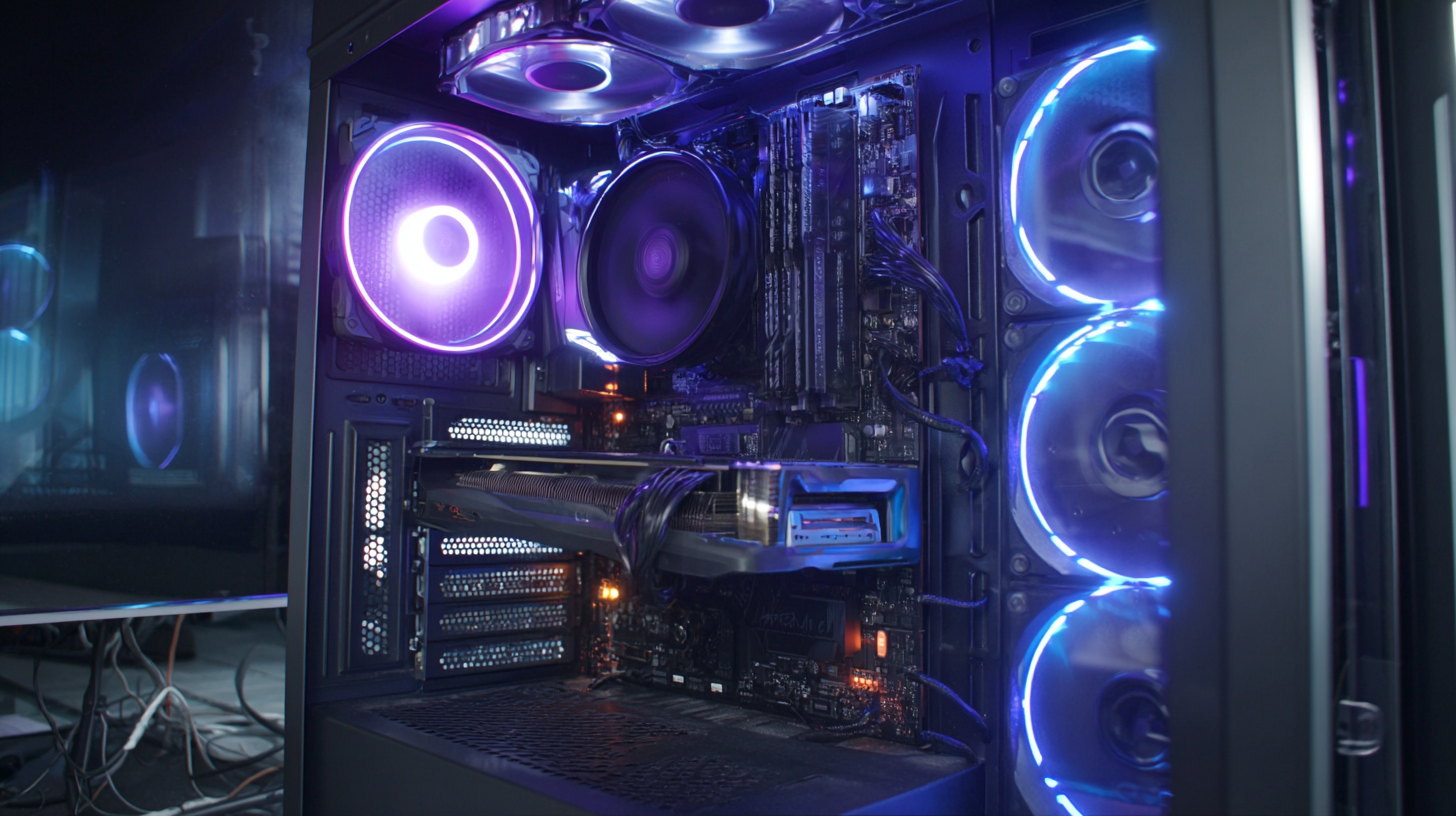Leave Your Message
- Phone
- E-mail
- Whatsapp


In the rapidly evolving world of gaming, a powerful Gaming PC can be the difference between mere enjoyment and an utterly immersive experience. According to a report from Jon Peddie Research, the global gaming market is projected to reach $159.3 billion in revenue by 2020, with PC gaming holding a significant share. As gamers demand higher performance to run the latest titles at ultra settings, understanding the technical specifications becomes paramount.

Components such as the GPU, CPU, and RAM not only affect frame rates and load times but also play a critical role in delivering stunning graphics and smooth gameplay. Moreover, optimizing your Gaming PC can lead to substantial improvements in performance, ensuring that you harness the full potential of your equipment.
This blog will delve into the best technical specs for a Gaming PC and offer expert tips on how to maximize your system’s performance for the ultimate gaming experience.
When building the ultimate gaming PC, understanding the essential components is crucial for achieving peak performance. The heart of any gaming system is the CPU; a powerful processor such as the AMD Ryzen series or Intel Core i7/i9 can handle demanding games and multitasking with ease. Coupled with a robust GPU, such as the NVIDIA GeForce RTX series, players can enjoy vibrant graphics and smooth frame rates, making a significant difference in the gaming experience.
Equally important are the motherboard and RAM. A high-quality motherboard supports advanced features and connectivity options, while fast RAM (at least 16GB of DDR4) ensures that your system runs efficiently during gameplay. Storage solutions like SSDs offer faster load times, dramatically improving how quickly games start and transition. By carefully selecting these crucial components, gamers can optimize their systems for the ultimate gaming experience, providing a foundation for future upgrades and ensuring longevity in a rapidly advancing technological landscape.
| Component | Recommended Specs | Importance for Gaming |
|---|---|---|
| CPU | Intel Core i7-12700K / AMD Ryzen 7 5800X | High performance in game logic processing |
| GPU | NVIDIA GeForce RTX 3070 / AMD Radeon RX 6700 XT | Graphics rendering for high frame rates and quality settings |
| RAM | 16GB DDR4 (3200MHz) | Increases multitasking capabilities |
| Storage | 1TB SSD + 2TB HDD | Fast load times and ample space for games |
| Motherboard | ATX form factor with PCIe 4.0 support | Compatibility with high-end components |
| Power Supply | 750W 80+ Gold certified | Stability and efficiency for system components |
| Cooling | Liquid cooling system or high-end air cooler | Maintains optimal temperatures during gaming |
When it comes to gaming performance, the CPU and GPU are crucial components that dictate the overall experience. The CPU, often referred to as the brain of the computer, handles various computations and processes that enable games to run smoothly. Recent discussions in the gaming community have underscored that sometimes upgrading the CPU alone does not necessarily translate into noticeable improvements in gaming performance. This highlights the importance of a balanced system where both the CPU and GPU synergize effectively to meet the demands of modern gaming titles.

The GPU, on the other hand, is the powerhouse responsible for rendering graphics and visual effects. Many gamers are now emphasizing the significance of having a robust GPU, as evidenced by recent benchmarks and rankings that have evaluated graphics card performance over a decade. When considering upgrades, it's vital to assess how new components will work together, utilizing technologies like dynamic power distribution systems that intelligently balance load between the CPU and GPU, ensuring optimal performance during intense gaming sessions. Understanding these technical specs can help gamers make informed decisions, ultimately leading to a more immersive gameplay experience.
Maximizing RAM and storage is crucial for achieving optimal gaming performance, particularly when balancing speed and capacity. Recent advancements in RAM technology show that the sweet spot for DDR5 memory lies in configurations that not only emphasize speed but also cater to the demands of modern processors. For instance, the latest high-performance RAM kits designed for gaming systems excel in capacities that can reach 32GB or more, with speeds exceeding 6000 MT/s. This ensures that gaming PCs can handle even the most demanding titles while providing a seamless experience during gameplay.
In addition to RAM, the choice of storage solutions plays a pivotal role in performance. Recent innovations in storage technology have led to high-capacity SSDs, with some models now offering up to 122TB of storage and impressive IOPS performance. This means gamers can store vast game libraries without sacrificing load times. Furthermore, optimizing storage by decluttering and utilizing retrieval augmentation techniques can significantly enhance overall system responsiveness, ensuring that your gaming setup not only runs smoothly but also scales efficiently for future demands. By strategically balancing RAM and storage, gaming enthusiasts can elevate their experiences to unprecedented levels.

When it comes to building or purchasing the best gaming PC, one of the most critical aspects often overlooked is effective cooling solutions. Gaming PCs generate significant heat, especially during intense gaming sessions, which, if not properly managed, can lead to thermal throttling and reduced performance. Therefore, investing in high-quality cooling systems is essential for maintaining optimal temperature and ensuring longevity of your components.
There are several cooling options available, including air and liquid cooling systems. Air cooling uses heatsinks and fans to dissipate heat, making it a cost-effective solution. However, for those looking for superior performance and aesthetics, liquid cooling systems offer exceptional heat management and quieter operation. These systems circulate coolant through a closed loop, absorbing heat from critical components and releasing it through radiators. Additionally, improving airflow within the case by strategically placing fans and cables can enhance cooling efficiency, allowing your gaming rig to perform at its best.
Proper maintenance of your cooling system is also crucial. Regularly cleaning dust from fans and filters can prevent overheating and ensure smooth airflow. Monitoring temperatures through software can help you make adjustments as needed, whether that means tweaking fan speeds or even investing in more efficient cooling solutions. By prioritizing cooling, you elevate your gaming experience, allowing for longer sessions with peak performance and reliability.
Optimizing your gaming experience goes beyond just having the best hardware; software tweaks can significantly enhance performance. One effective method is to regularly restart and update your PC. Ensuring your system runs the latest updates can resolve numerous glitches and improve overall responsiveness, ultimately providing a smoother gaming experience.
Another crucial tip is to explore overclocking options. With the advent of performance enhancements in gaming PCs, overclocking your CPU or GPU can unlock additional performance potential. Always follow safe practices and make adjustments gradually to maintain system stability. Many modern systems now come with warranties that cover overclocking, so you can confidently push your hardware further.
Lastly, adjusting your game settings can make a significant difference. Lowering resolution and texture quality can increase frames per second (FPS), making gameplay smoother. Experimenting with these graphics settings helps find a perfect balance between visual quality and performance for a tailored gaming experience.
This chart illustrates key performance metrics for an optimal gaming PC setup, including CPU cores, RAM, GPU memory, storage, and frames per second (FPS) achievable during gameplay. These components play a significant role in enhancing the overall gaming experience.
